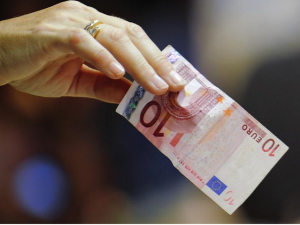Europe’s Many Economic Disasters
< < Go Back
by Paul Krugman,
Why are there so many economic disasters in Europe? Actually, what’s striking at this point is how much the origin stories of European crises differ. Yes, the Greek government borrowed too much. But the Spanish government didn’t — Spain’s story is all about private lending and a housing bubble. And Finland’s story doesn’t involve debt at all. It is, instead, about weak demand for forest products, still a major national export, and the stumbles of Finnish manufacturing, in particular of its erstwhile national champion Nokia.
What all of these economies have in common, however, is that by joining the eurozone they put themselves into an economic straitjacket.
Does this mean that creating the euro was a mistake? Well, yes. But that’s not the same as saying that it should be eliminated now that it exists.
But there are many European officials and politicians who are opposed to anything and everything that might make the euro workable, who still believe that all would be well if everyone exhibited sufficient discipline. And that’s why there is even more at stake in Sunday’s Greek referendum than most observers realize.
One of the great risks if the Greek public votes yes — that is, votes to accept the demands of the creditors, and hence repudiates the Greek government’s position and probably brings the government down — is that it will empower and encourage the architects of European failure. The creditors will have demonstrated their strength, their ability to humiliate anyone who challenges demands for austerity without end. And they will continue to claim that imposing mass unemployment is the only responsible course of action.
What if Greece votes no? This will lead to scary, unknown terrain. Greece might well leave the euro, which would be hugely disruptive in the short run. But it will also offer Greece itself a chance for real recovery. And it will serve as a salutary shock to the complacency of Europe’s elites.
Or to put it a bit differently, it’s reasonable to fear the consequences of a “no” vote, because nobody knows what would come next. But you should be even more afraid of the consequences of a “yes,” because in that case we do know what comes next — more austerity, more disasters and eventually a crisis much worse than anything we’ve seen so far.
More From The New York Times:




